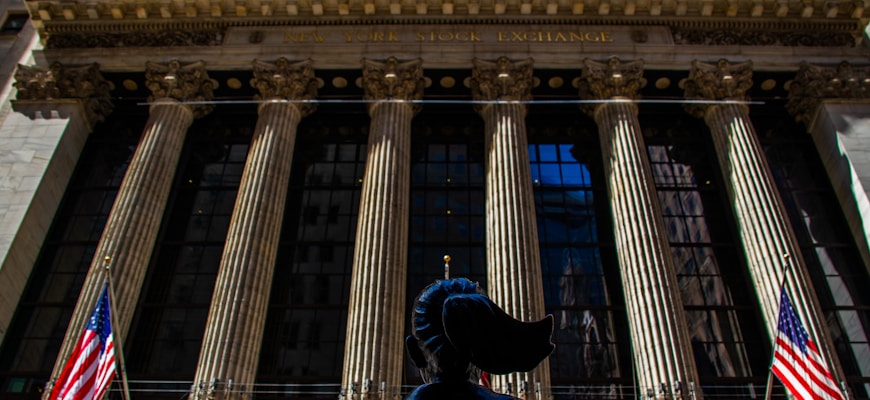Institutional Investors Flock to Crypto: What It Means for Retail Traders

- The Rise of Institutional Investors in the Crypto Market
- How Institutional Investors are Impacting the Cryptocurrency Landscape
- What Retail Traders Need to Know About Institutional Interest in Crypto
- The Influence of Institutional Money on Cryptocurrency Prices
- Challenges and Opportunities for Retail Traders in the Face of Institutional Investment
- Strategies for Retail Traders to Navigate the Changing Crypto Market
The Rise of Institutional Investors in the Crypto Market
As the crypto market continues to evolve, one of the most notable trends is the rise of institutional investors. Large financial institutions, hedge funds, and other big players are increasingly taking an interest in cryptocurrencies, bringing with them a level of capital and sophistication that is reshaping the industry.
These institutional investors are attracted to the crypto market for a variety of reasons. Some see it as a way to diversify their portfolios and hedge against traditional assets, while others are drawn to the potential for high returns in a volatile market. Additionally, the increasing regulation and legitimacy of the crypto space have made it more appealing to institutional players who were previously hesitant to get involved.
One of the key impacts of this influx of institutional investors is increased liquidity in the crypto market. With large amounts of capital flowing in, there is greater stability and depth to trading, making it easier for retail traders to buy and sell assets without causing significant price fluctuations.
Furthermore, the involvement of institutional investors brings a level of credibility to the crypto market that was previously lacking. Their participation can help to legitimize the industry in the eyes of regulators, mainstream investors, and the general public, paving the way for further adoption and growth.
Overall, the rise of institutional investors in the crypto market represents a significant shift in the landscape of digital assets. While it may introduce new challenges and complexities for retail traders, it also signals a maturing and increasingly mainstream industry that offers exciting opportunities for all participants.
How Institutional Investors are Impacting the Cryptocurrency Landscape
In recent years, institutional investors have been increasingly entering the cryptocurrency market, bringing with them significant capital and expertise. This influx of institutional money has had a profound impact on the crypto landscape, influencing everything from market volatility to regulatory developments.
One of the key ways in which institutional investors are shaping the cryptocurrency market is through their sheer financial power. With deep pockets and a willingness to take on risk, these investors have the ability to move markets and influence prices in ways that retail traders simply cannot. This has led to increased price stability in some cases, as well as heightened volatility in others.
Additionally, institutional investors are also playing a role in shaping the regulatory environment for cryptocurrencies. As major players in the financial world, they have the ear of policymakers and regulators, and their actions can often influence the direction of regulatory developments. This can have both positive and negative implications for retail traders, depending on the specific regulations that are put in place.
Overall, the entrance of institutional investors into the cryptocurrency market has brought both opportunities and challenges for retail traders. While their presence can bring increased liquidity and legitimacy to the market, it can also lead to increased competition and heightened volatility. As the crypto landscape continues to evolve, it will be important for retail traders to stay informed and adapt to the changing environment.
What Retail Traders Need to Know About Institutional Interest in Crypto
Understanding institutional interest in cryptocurrency is crucial for retail traders looking to navigate the ever-changing market. Institutions, such as hedge funds and investment banks, have been increasingly flocking to the crypto space, bringing with them significant capital and influence. As a retail trader, it is essential to be aware of how institutional interest can impact the market and your trading strategy.
One key aspect of institutional interest in crypto is the potential for increased liquidity. With institutions entering the market, trading volumes are likely to rise, leading to greater liquidity and potentially tighter spreads. This can create more opportunities for retail traders to enter and exit positions at favorable prices, as well as reduce the risk of slippage.
Additionally, institutional involvement can bring a level of legitimacy to the crypto market. As more traditional financial players embrace cryptocurrencies, it can help to validate the asset class and attract more mainstream investors. This increased acceptance and adoption of crypto can lead to greater overall market stability and potentially higher valuations.
However, it’s essential for retail traders to be aware of the potential downsides of institutional interest in crypto. Institutions often have access to resources and information that retail traders may not, giving them an advantage in the market. This can lead to increased volatility and sudden price movements that retail traders may struggle to anticipate or react to effectively.
Overall, while institutional interest in crypto can bring benefits such as increased liquidity and market legitimacy, retail traders must approach the market with caution. By staying informed about institutional activity and market trends, retail traders can position themselves to take advantage of opportunities while managing the risks associated with institutional involvement in the crypto space.
The Influence of Institutional Money on Cryptocurrency Prices
One of the key factors influencing the prices of cryptocurrencies is the influx of institutional money into the market. As institutional investors increasingly allocate funds to digital assets, they have a significant impact on the overall price movements of cryptocurrencies.
Unlike retail traders, institutional investors typically have larger capital at their disposal, allowing them to make substantial investments in cryptocurrencies. This influx of institutional money can lead to increased volatility in the market, as their large trades can cause significant price fluctuations.
Furthermore, institutional investors often have a more long-term perspective when it comes to their investments in cryptocurrencies. This can result in more stable price trends over time, as institutional investors are less likely to panic sell during periods of market turbulence.
Overall, the growing presence of institutional money in the cryptocurrency market is a positive sign for retail traders. It can lead to increased liquidity, reduced price manipulation, and a more mature market overall. Retail traders can benefit from following the lead of institutional investors and adjusting their trading strategies accordingly.
Challenges and Opportunities for Retail Traders in the Face of Institutional Investment
Retail traders face a number of challenges and opportunities in the wake of increased institutional investment in the crypto market. On one hand, the influx of institutional investors can lead to greater market stability and increased liquidity, making it easier for retail traders to buy and sell digital assets. However, it also means that retail traders may have to compete with these larger players, who often have access to more resources and information.
One of the main challenges for retail traders is the potential for increased volatility in the market. Institutional investors have the power to move large amounts of capital, which can lead to rapid price fluctuations that may be difficult for retail traders to predict or react to. This can create both risks and opportunities for retail traders, depending on their ability to navigate these shifts in the market.
On the other hand, the growing interest from institutional investors can also bring new opportunities for retail traders. For example, as more institutions enter the market, there may be a greater focus on regulatory compliance and investor protection, which could help to legitimize the crypto industry as a whole. Additionally, institutional involvement can bring more mainstream attention to digital assets, potentially leading to increased adoption and investment from retail traders.
Strategies for Retail Traders to Navigate the Changing Crypto Market
Retail traders in the crypto market are facing new challenges as institutional investors are increasingly entering the space. To navigate these changes effectively, retail traders need to adapt their strategies to stay competitive and profitable in this evolving landscape.
One key strategy for retail traders is to stay informed about market trends and news. By keeping up to date with the latest developments in the crypto market, traders can make more informed decisions about when to buy or sell their assets.
Diversification is another crucial strategy for retail traders in the crypto market. By spreading their investments across different assets, traders can reduce their risk exposure and protect themselves against volatility in any one particular asset.
Setting clear goals and sticking to a trading plan is essential for retail traders to navigate the changing crypto market. By defining their objectives and following a disciplined approach to trading, traders can avoid making impulsive decisions based on market fluctuations.
Lastly, retail traders should consider seeking guidance from experienced professionals or joining online communities to share insights and strategies with other traders. By learning from others in the industry, retail traders can improve their own trading techniques and stay ahead of the curve in the competitive crypto market.



